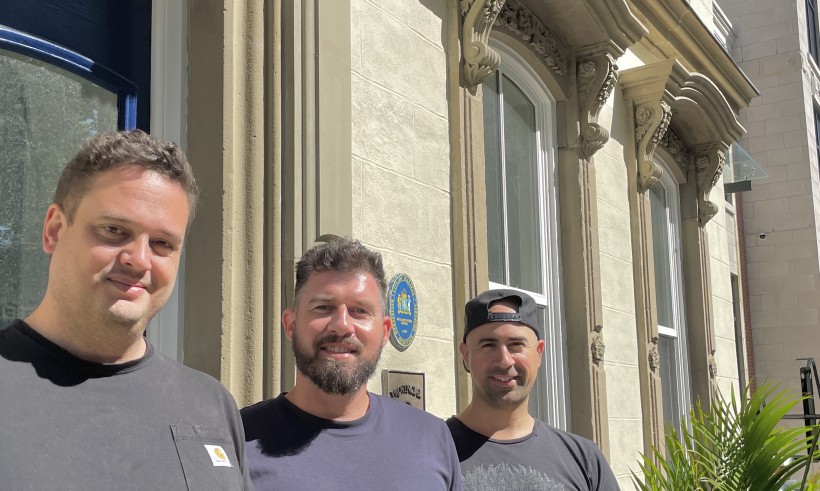B-Line Technologies, the Halifax maker of smart building technology, has launched a new AI assistant product to act as a building management hub and help operators find information quickly.
In an interview at the company’s offices in Halifax’s historic Benjamin Wier House, CEO Aaron Short said B-Line is experiencing “exponential” revenue growth.
“A lot of the analytics that we were doing before could be accessed by a couple of administrators, and they would see all the data,” said Short. “But now, with the advent of gen-AI (generative AI), we’ve been able to layer information for different permissions.
“Administrators can see the data that they need to see. Staff can ask questions that they need to get answers to, so it reduces staff onboarding. And then you can have guests and visitors that use the application to get information that they need in a faster, more streamlined way.”
B-Line's flagship offering is an app that uses data about how building occupants interact with a space to find insights that help property managers and others run their buildings more efficiently and securely. The company’s technology can be tied to a building’s access control system, such as with its app that can operate keycard-controlled locks. And the software can access and analyze data from equipment like HVAC systems.
The platform uses bluetooth sensors spread throughout a building to triangulate a phone’s location, gathering data according to a stringent privacy policy. The AI assistant, meanwhile, is built on Chat-GPT, with specialized model tuning and data aggregated via B-Line’s own system.
The bluetooth sensors are only slightly larger than a stack of two or three loonies and have a battery life of about five years. B-Line typically collaborates with local access control companies to install its systems.
The technology can also be adapted to clients’ specific needs. For example, it can monitor how long, on average, it takes a housekeeper at a hotel to clean a room. Then, it can use that data, along with the location of the housekeeper, to predict when specific rooms will become available for guests. The Brookstreet Hotel in Ottawa has been doing just that, in fact.
“Front desk staff will say, ‘Hey, when is the room ready?’” explained Short. “Housekeepers will have the app on their phone and be using it to get in and out of the rooms. But also, we have sensors (at the room entrances). We don’t track individual housekeepers, but we can look at the aggregate data and say, ‘Okay, it’s taking 25 minutes to clean a room, and this person has been there for 15 minutes. Room 1016 will become available in the next 10 minutes.’”
B-Line, which now employs a team of eight people, has clients in Canada and the U.S., as well as a handful in more far-flung places like Australia and Scandinavia. Short’s team is also eyeing clients in the U.K.
After holding off on a capital raise until B-Line had the traction it needed to command a higher price from investors, Short is now in the midst of raising a round of seed funding. He said a significant portion of his hoped-for funds are already committed.
“We’ve held off for a long time because we wanted to raise at a valuation that was fairly high, because we’ve been in business for a long time,” he said. “But now we feel it’s the right time.”










